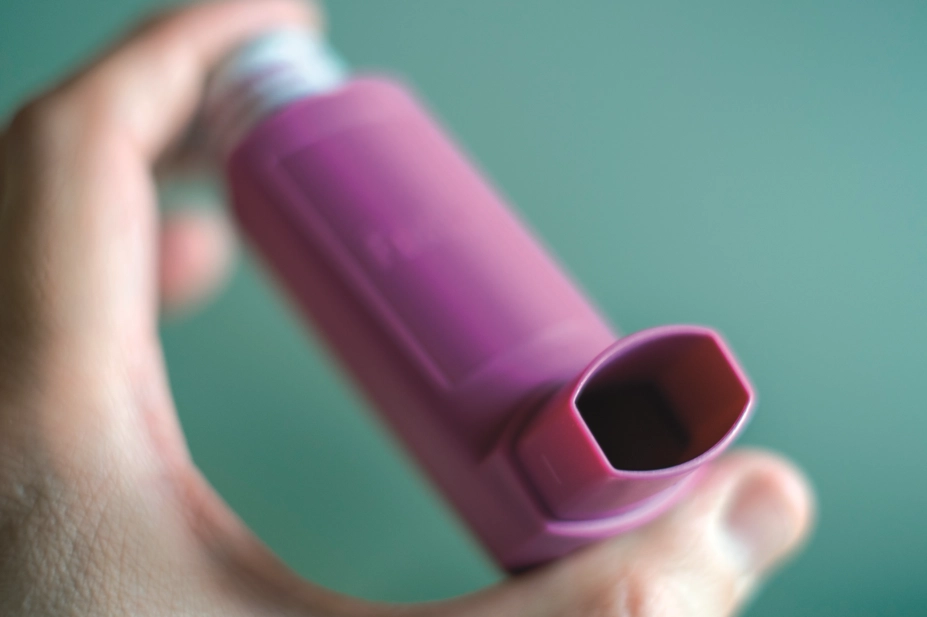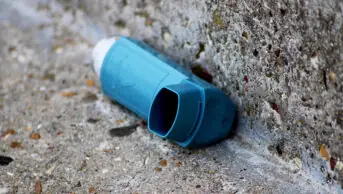
Shutterstock.com
Incentives for GPs in England to switch patients to more environmentally friendly inhalers have been delayed until 2022 to enable general practice to accelerate the delivery of COVID-19 booster jabs, NHS England has said.
In a letter to primary care networks (PCNs), published on 8 December 2021, NHS England said it was also suspending incentives for the delivery of plans to increase referrals to community pharmacy through the community pharmacist consultation service (CPCS) by March 2022.
The letter comes after the government announced in November 2021 that all adults would be offered a COVID-19 booster jab by the end of January 2022 to mitigate the impact of the Omicron variant.
As a result, NHS England said it would suspend some elements of the Investment and Impact Fund (IIF) and the Quality and Outcomes Framework until April 2022 “to support GPs, PCNs and their teams to progress this expansion of the vaccination programme”.
The letter explained that the funding attached to suspended IIF incentives — totalling £112.1m — will be “repurposed”, with £49.7m allocated “to a new binary IIF indicator, paid on the basis of all practices within a PCN being signed up to phase 3 of the COVID-19 Vaccination Enhanced Service as at 31 December 2021” and continuing to deliver the service until 31 March 2022.
The incentives around inhaler switching and CPCS referrals both form part of the IIF, announced in August 2021, which would have enabled PCNs to claim up to £150m in total in 2021/2022.
The targets called for PCNs to aim to reduce the proportion of patients prescribed metered-dose inhalers (MDIs) to 44% of all “non-salbutamol inhaler prescriptions issued to patients aged 12 years or over” by 31 March 2022.
It added that PCNs should aim to reduce the mean carbon emissions per salbutamol inhaler to 22.1kg carbon dioxide equivalent by 31 March 2022.
Meanwhile, the CPCS, in which patients are referred from general practice to community pharmacy for a same-day consultation with a pharmacist for minor illnesses, such as acne, constipation or vaginal discharge, was rolled out nationally in November 2020, following a pilot that began in July 2019.
However, it has seen a low uptake from GPs, with a report from the Royal Pharmaceutical Society revealing that just 862 out of more than 6,500 GP practices were using the service as of October 2021.
The IIF incentive had called for PCNs to “work collaboratively with local community pharmacy colleagues to develop and commence delivery of a plan to increase referrals to the CPCS, with referral levels increasing by no later than 31 March 2022”.
Incentives for subsequent years had required PCNs to build on these plans, with targets for GPs to refer at least 34 patients per 1,000 registered in 2022/2023.
Why are green inhaler targets proving controversial?
Incentives for GPs to switch patients to dry powder inhalers (DPIs) and soft mist inhalers were first published in September 2021, as part of NHS England’s wider plans to become net zero for carbon emissions by 2040.
According to its ‘Delivering a ‘Net Zero’ National Health Service’ strategy, published in October 2020, inhalers are responsible for 3% of emissions generated by the NHS, with the propellant in salbutamol metered-dose inhalers (MDIs) the single biggest source of carbon emissions from NHS medicines prescribing.
With the targets in place, the NHS said its aim is for MDIs to make up “only 25% of non-salbutamol inhalers prescribed” by 2023/2024.
Up until the early 1990s, MDIs contained chloroflurocarbon (CFC) propellants, before it was discovered that they were damaging the atmospheric ozone layer and were later phased out and replaced by CFC-free MDIs, containing hydrofluroalkane (HFA) propellants.
However, this did not solve the devices’ environmental problems as there is now increasing attention on the environmental impacts of HFAs, which are themselves powerful greenhouse gases.
Experts have also warned that DPIs “aren’t as green as we think they are”.
DPIs do not require a propellant but instead contain a lot of plastic, with respiratory experts arguing that the environmental benefits sought by the NHS can still be achieved by focusing on the patient’s needs, rather than specific inhalers.
Read more: Greener inhalers: are we setting the wrong targets?


